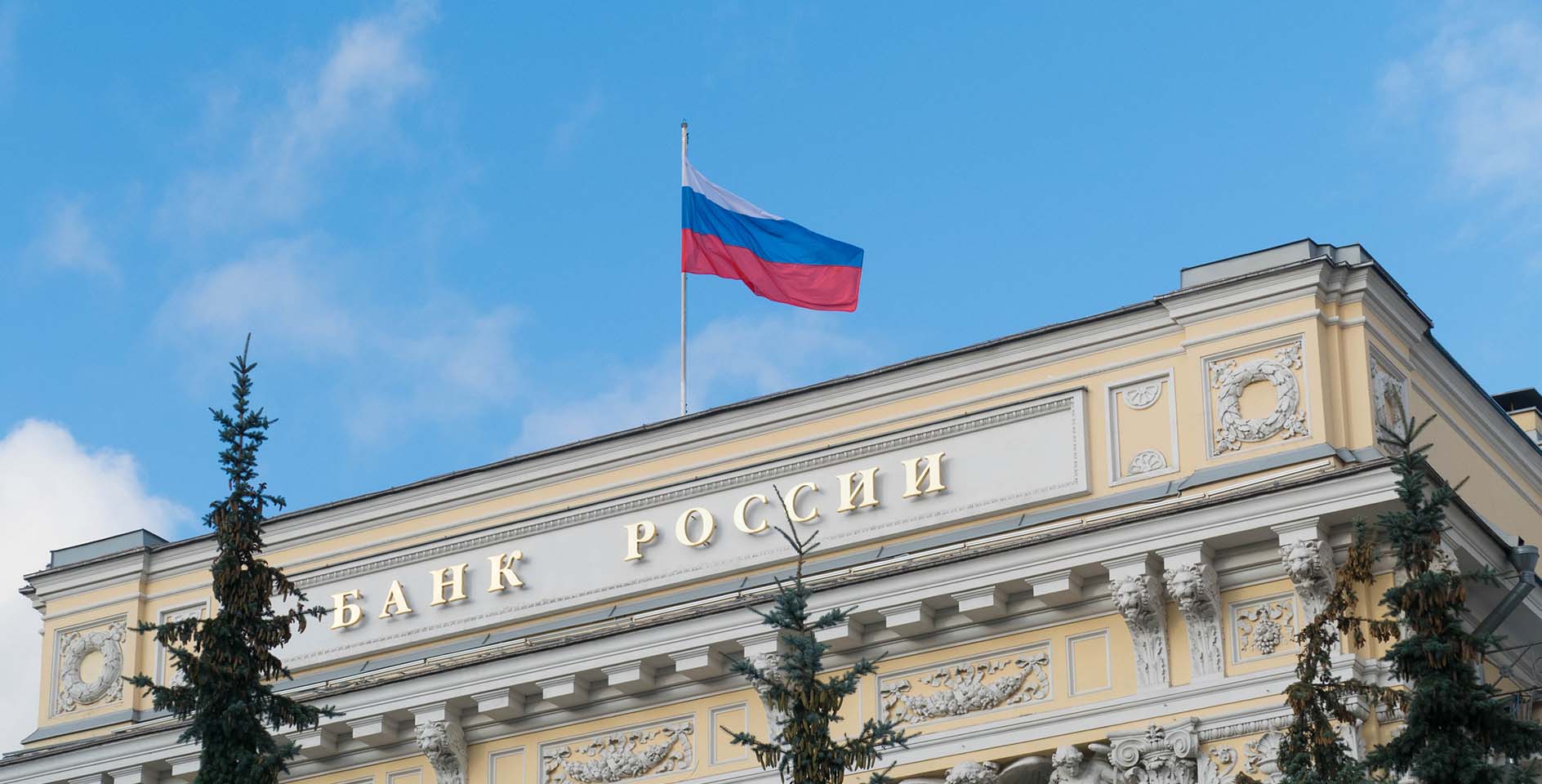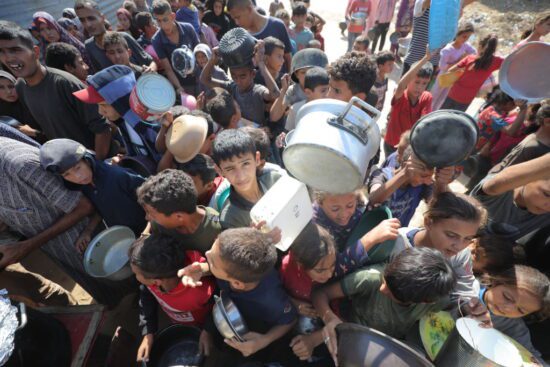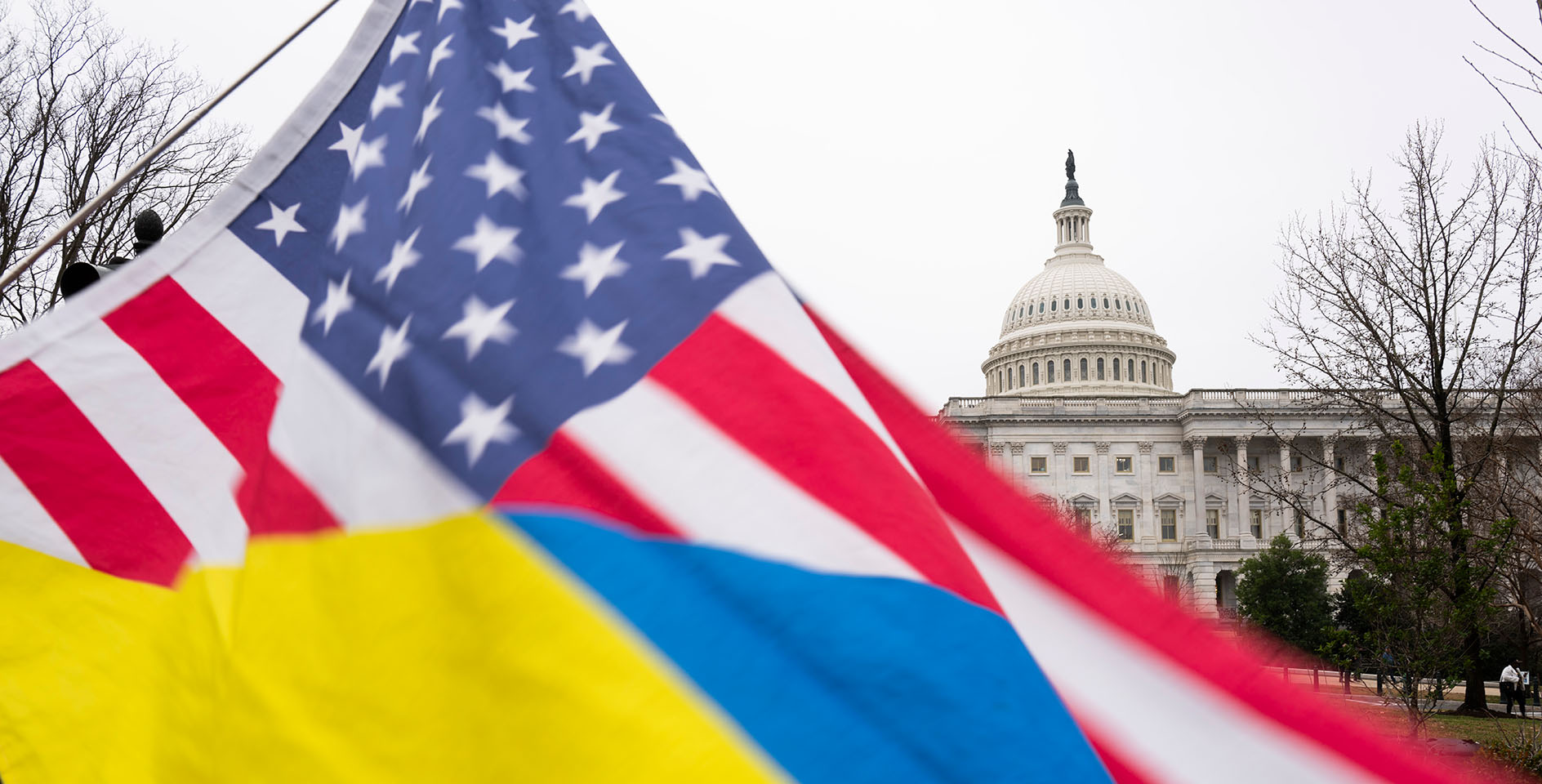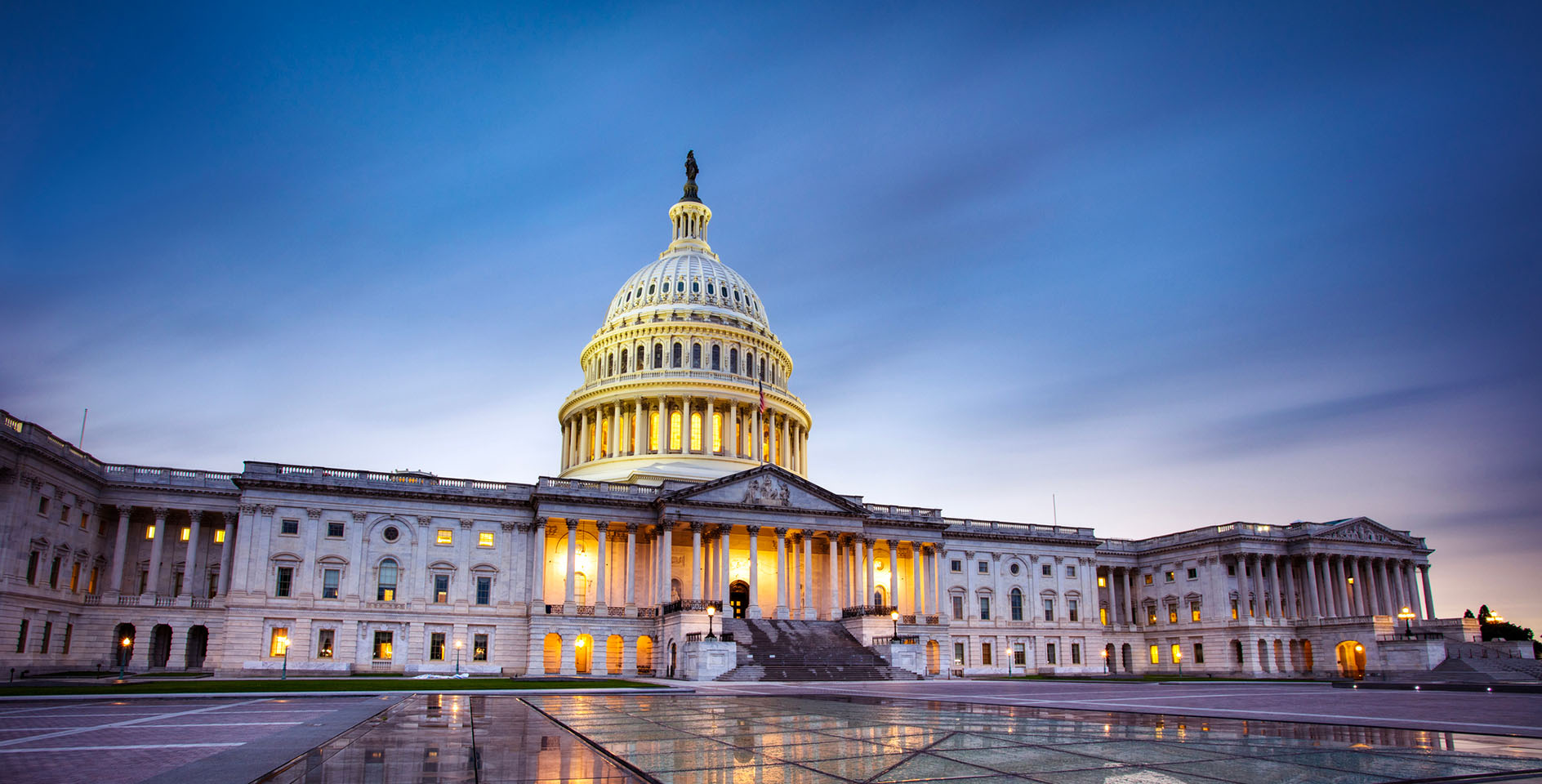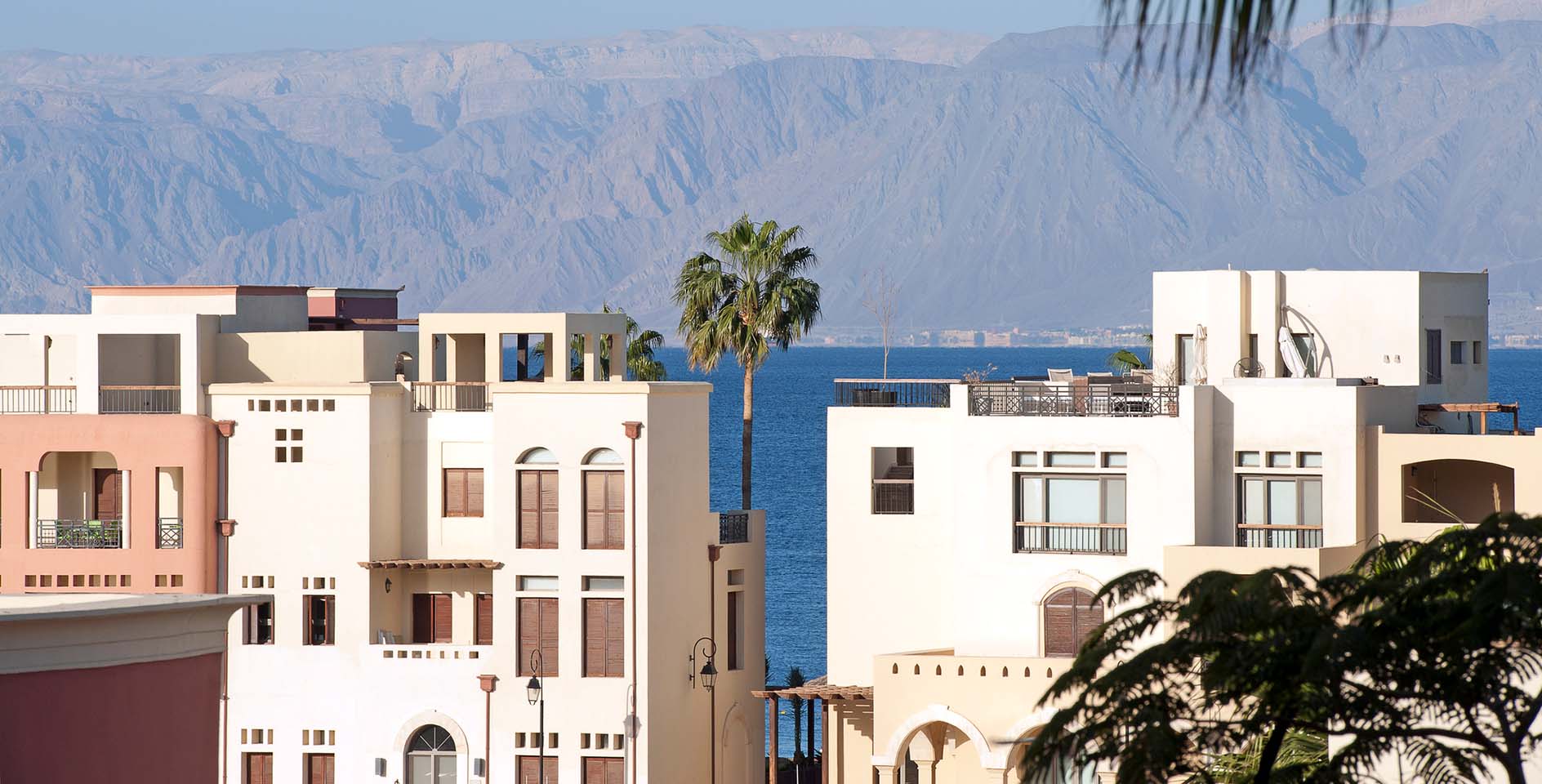In response to the Russian invasion of Ukraine, President Biden announced last week that the United States, along with Allies and partners, will be imposing “severe and immediate” economic sanctions on Russia.
“Putin is the aggressor. Putin chose this war. And now he and his country will bear the consequences,” Biden said in an address last Thursday. “Today, I am authorizing additional strong sanctions and new limitations on what can be exported to Russia. This is going to impose severe costs on the Russian economy, both immediately and over time.”
Here is what you should know about the economic sanctions being imposed on Russia.
What are sanctions?
As applied to international relations, the term sanctions refers to coercive measures taken by either nations or international bodies to deter, punish, rehabilitate, or shame foreign countries or foreign nationals into changing their behavior. Sanctions generally take one of five forms: diplomatic, economic, individual, military, and sports. The type of sanctions by the Biden administration are a mix of individual and economic sanctions.
Individual sanctions target individual foreign nationals who have the power or influence to change an unwanted policy or because they are connected to a leader who does.
Economic sanctions are the withdrawal of customary trade and financial relations for foreign and security policy purposes. (“Customary” refers to the levels of trade or financial activity that would probably have occurred in the absence of sanctions.) Economic sanctions can take numerous forms, including freezing of economic assets, restraints on capital, restrictions on trade, and reductions in foreign aid.
What sanctions have been imposed?
Biden has imposed sanctions on six Russian elites and their family members: Sergei Ivanov (and his son, Sergei), Nikolai Patrushev (and his son Andrey), Igor Sechin (and his son Ivan), Andrey Puchkov, Yuriy Solviev (and two real estate companies he owns), Galina Ulyutina, and Alexander Vedyakhin. According to the White House, “these individuals and their relatives directly benefit from their connections with the Kremlin.” These sanctions cut these men off from the U.S. financial system, freeze any assets they hold in the U.S., and block their travel to our country.
Individual sanctions have also been imposed on 24 Belarusian individuals that have supported the Russian aggression against Ukraine.
The U.S. and the European Union are also planning to put sanctions on Russian President Putin and Russian Foreign Minister Sergey Lavrov.
More broad based economic sanctions include severing the connection to the U.S. financial system for two of Russia’s largest financial institutions, Sberbank (and its 25 subsidiaries) and VTB Bank (and its 20 subsidiaries).
The White House says this action will restrict Sberbank’s access to transactions made in the U.S. dollar. Sberbank, the largest bank in Russia, holds nearly one-third of the overall Russian banking sector’s assets, is heavily connected to the global financial system, and is systemically critical to the Russian financial system. This action will freeze any of VTB’s assets touching the U.S financial system and prohibit U.S. persons from dealing with them. VTB holds nearly one-fifth of the overall Russian banking sector’s assets, is heavily exposed to the U.S. and Western financial systems, and is systemically critical to the Russian financial system. Sanction are also imposed on three other major Russian financial institutions and their 34 subsidiaries
New debt and equity restrictions are also being put on 13 Russian state-owned enterprises and entities: Sberbank, AlfaBank, Credit Bank of Moscow, Gazprombank, Russian Agricultural Bank, Gazprom, Gazprom Neft, Transneft, Rostelecom, RusHydro, Alrosa, Sovcomflot, and Russian Railways. These entities, says the White House, including companies critical to the Russian economy with estimated assets of nearly $1.4 trillion, will not be able to raise money through the U.S. market. This action will limit the Russian government’s ability to raise money for its war in Ukraine.
Restrictive measures have also been added that will prevent the Russian Central Bank from deploying its international reserves in ways that undermine the impact of our sanctions.
The U.S. has also joined other countries in ensuring that selected Russian banks are removed from the SWIFT messaging system, which ensures those banks are “disconnected from the international financial system and harm their ability to operate globally.”
A broad range of restrictions have also been put on exports that could help Russia’s military. Exports of nearly all U.S. items and items produced in foreign countries using certain U.S.-origin software, technology, or equipment will be restricted to targeted military end users. These restrictions apply to the Russian Ministry of Defense and the Armed Forces of Russia.
Who in the U.S. has authority to impose sanctions against Russia?
U.S. law gives authority to impose sanctions to both the president (through executive orders) and the legislative branch.
The International Emergency Economic Powers Act (IEEPA) gives the president broad powers to declare an international emergency and impose economic sanctions if there exists an “unusual and extraordinary threat, which has its source in whole or substantial part outside the United States, to the national security, foreign policy, or economy of the United States.” Congress has the ability to pass a resolution to terminate such emergencies, but the president could veto such a resolution.
Congress also has the authority to impose sanctions, but they more commonly build on existing sanctions programs that are introduced by the executive branch.
Who actually imposes sanctions for the U.S. government?
Economic sanctions are typically administered by the Treasury Department’s Office of Foreign Assets Control (OFAC). Currently, OFAC administers 37 different sanctions programs, which does not yet include the new Russian sanctions.



